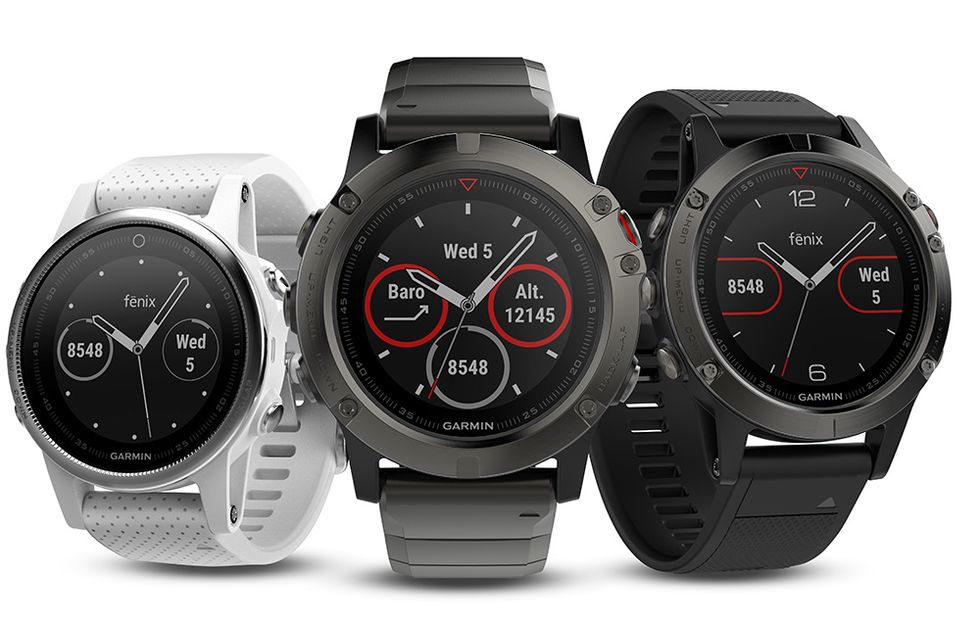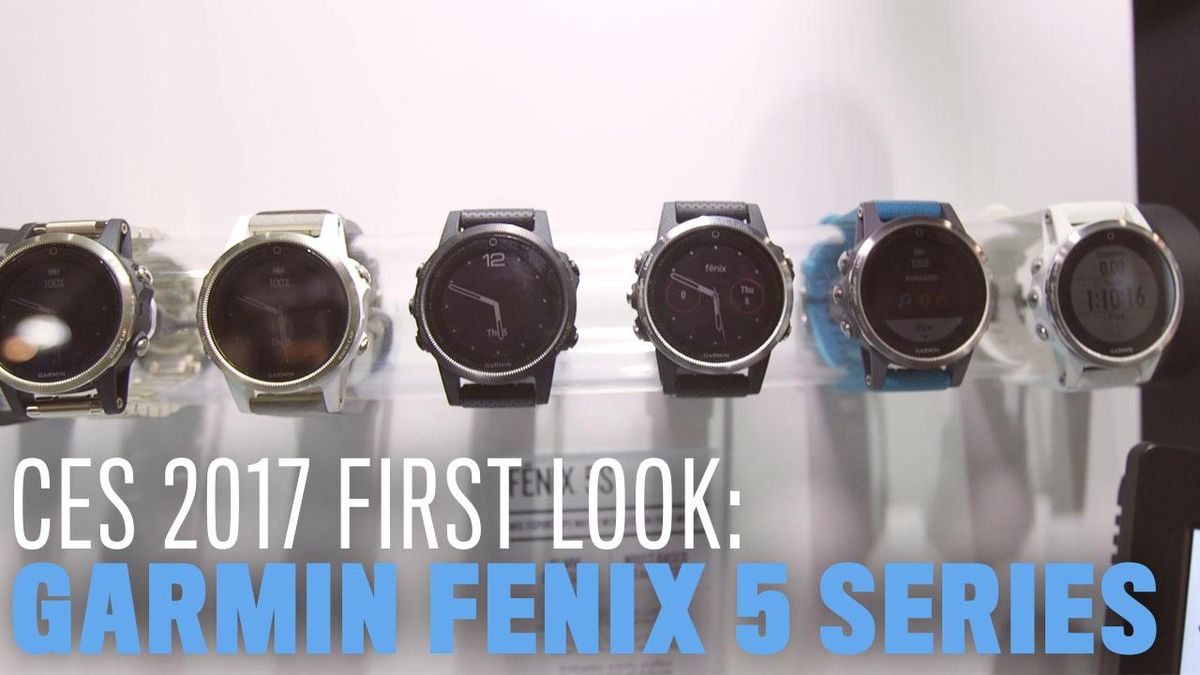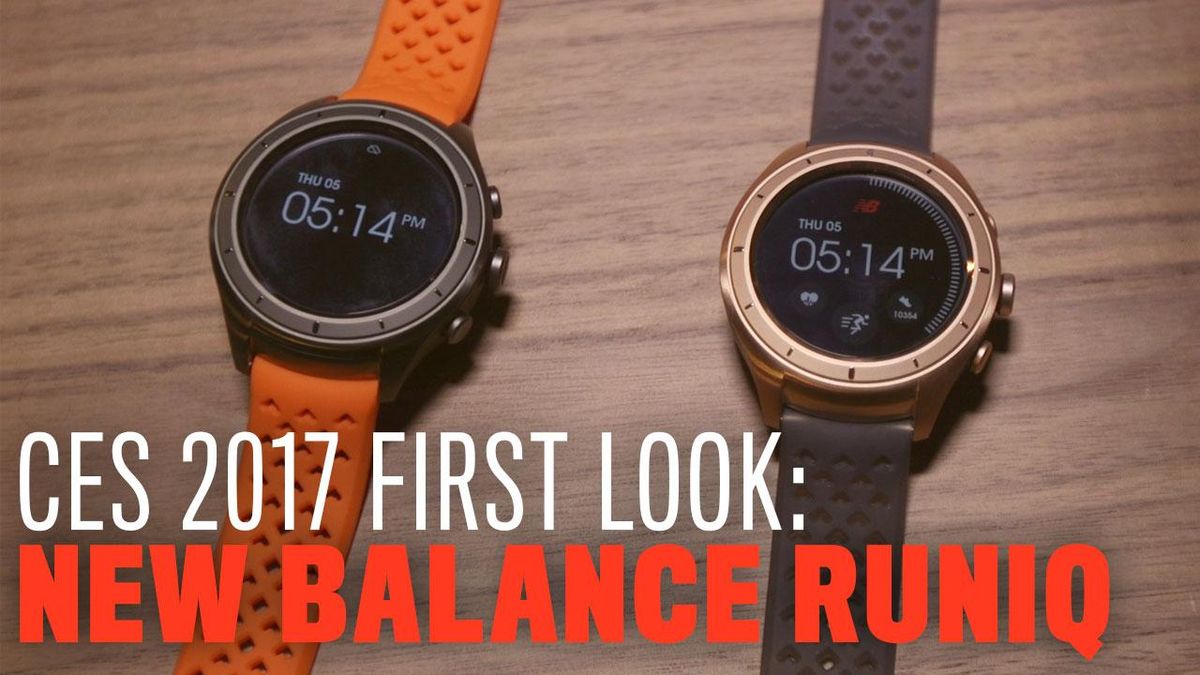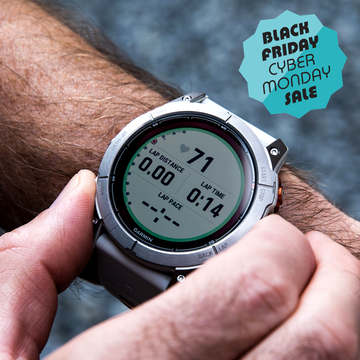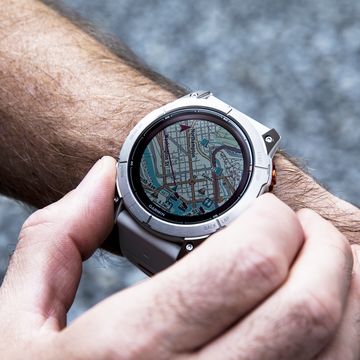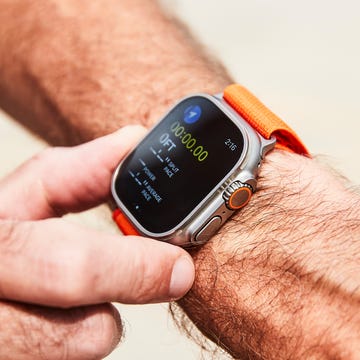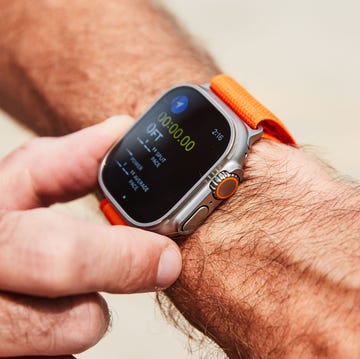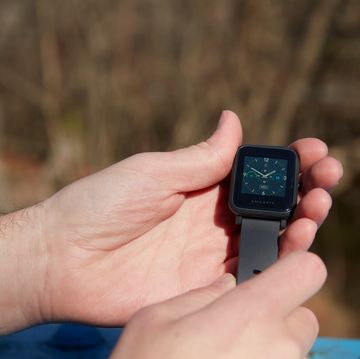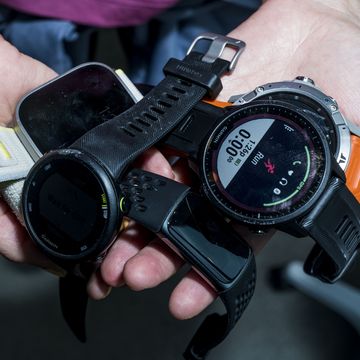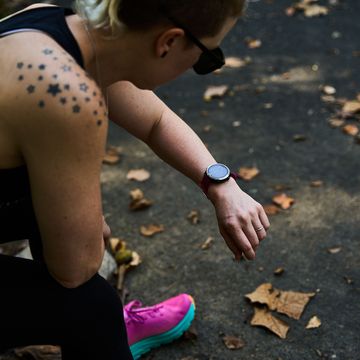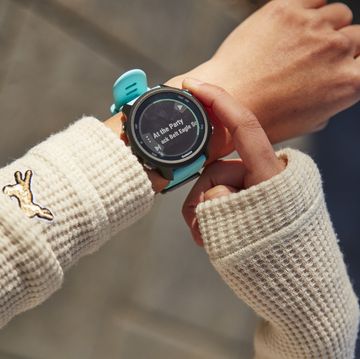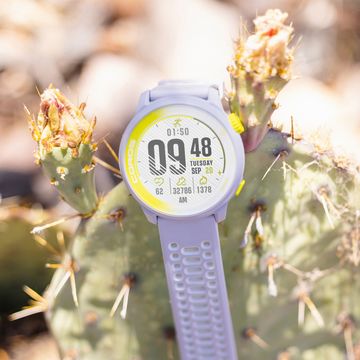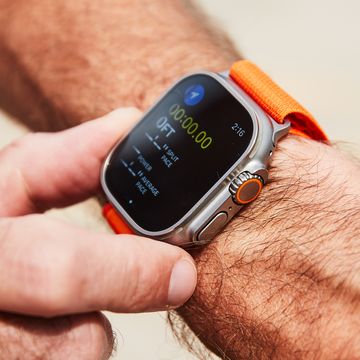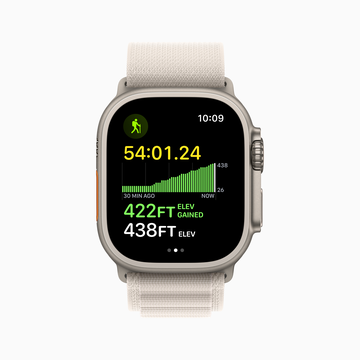Every year in early January, tech geeks make a pilgrimage to Las Vegas to check out the latest gadgets—both big and small. This year, Runner’s World was at CES 2017 as technology has increasingly become a part of our everyday training and overall health. Here are 15 promising products we found at the show that you’ll be able to purchase soon.
Garmin Fenix 5 Series
Garmin completely skipped the fourth version of its popular outdoor/multisport watch. The all-new Fenix 5 comes in three sizes. The standard Fenix 5 ($599.99) remains a multisport watch that has all-day activity tracking, wrist-based heart-rate readings, and smartwatch connectivity. It’s slightly more compact than the previous generation, but it still packs a 24-hour battery using GPS under the rugged case. A smaller Fenix 5S ($599.99) fits smaller wrists better, but sacrifices some juice—its battery is set to go just 13 hours in GPS mode. For the adventure-minded, a larger Fenix 5X ($699.99) is available and comes preloaded with topographical maps of the U.S. and directional cues so you can follow a route from your wrist. $599-$699, amazon.com
New Balance RunIQ Smartwatch
The first smartwatch by New Balance is powered by Android Wear and is built in conjunction with Intel. That means the company is unlikely to suffer many of the same hurdles (and bugs) that trip up newcomers to hardware manufacturing. It also has a built-in Strava app, so your workouts can be seamlessly recorded to one of the most popular running and cycling communities on the web. An optical heart-rate monitor on the backside keeps tabs on your pulse. The one small feature that sets it apart from every other smartwatch: a dedicated lap button. Tap the bottom button on the right side to take a lap split mid-workout or race. $299, newbalance.com
Suunto Spartan Sport Wrist HR
Expanding on the Spartan line, the Sport is thinner and lighter, but is still a powerful touchscreen smartwatch. To save space and size, the watch sacrifices a barometric altimeter and instead relies on GPS to give you an elevation reading (like most running watches). The Sport Wrist HR gets an optical heart-rate monitor built by Valencell, a biometric instrument maker, ensuring extreme accuracy. $599, suunto.com
Arion
This running analysis system uses a pressure-sensing insole to monitor your running form—impact forces, foot strike locations, cadence, and the other little details that make up your running gait. That information is relayed by a small footpod to your smartphone. (That footpod also has GPS built-in, so you can leave the phone behind and still track your run.) If you run with your phone or smartwatch paired to headphones, the device’s companion app will give you cues on how to change your form. Unlike being overly prescriptive like some other devices we’ve seen, Arion gives you five levels like “very far away” from your target zone, so it’s easily understood by runners of all levels. ato-gear.com
Halo Sport
They look like an ordinary pair of Beats headphones, but there’s a series of motor cortex-stimulating electrodes along the inner edge of the headband. Worn for a 20-minute session before your workout, these stimulate your brain—it excites your motor neurons for about an hour and speeds up the muscle memory process—so you can respond better to the physical training to come. $699, haloneuro.com
AfterShokz Trekz Titanium
Safety rules. These Bluetooth-enabled headphones use bone conduction to send sound waves through bones at your temples, leaving your ears completely uncovered when out on a run or working out in the gym. This means you can hear cars and other potential hazards around you when running on open roads. The lightweight titanium construction is comfortable to wear and stays put when bouncing down the road. $130, amazon.com
Sensoria Smart Sock 2.0
A stretchy athletic sock with built-in pressure sensors to measure landing forces, which in turn could help you improve running form. The second iteration of this device gets upgrades in sock quality with thinner, stretchier fabric, plus a smaller communication pod that can also be attached to a new smart shoe built in partnership with Vivobarefoot. $199, sensoriafitness.com
Under Armour Speedform Gemini 3 RE
The second version of this “Record Equipped” smart shoe tracks your cadence, distance, and pace like the Gemini 2 RE. But this version also includes a jump test. Pair the shoe with your phone and launch the MapMyRun app for a 20-second assessment that will tell you whether your body is ready for an interval workout or if you’re better off taking another recovery day. All run data can be recorded to the shoe’s sensor when you’re running without your phone for analysis later. $160, underarmour.com
LumiWave
The truth is that running hurts. And runners spend a lot of time and money trying to recover from workouts faster or overcome injury. This system uses LED pods (four or eight, each with 50 LED lights) to cause a photochemical reaction. The lights trigger the release of nitric oxide, which signals your body to go into repair mode. From $450, lumiwave.com
Shape Heart
Coming to Kickstarter in March, this armband has a built-in heart-rate monitor that will measure your pulse on your upper arm—eliminating some of the inaccuracy that can happen by a poor fitting wristwatch that allows too much daylight to interfere with an optical sensor. It also uses two strong magnets to hold the phone sleeve to the armband, so you can easily pop the phone off to change songs or snap selfies. Shapeheart.com
CT Band
Turn any watch into a 24/7 fitness tracker. This strap snaps on using typical watch pins and can monitor speed, distance, steps, heart rate, temperature, and blood oxygen rate. You’ll also see text messages, emails, and incoming calls. ct-band.com
Comply Sport+ with Sweatguard
These replacement foam tips for your sport earbuds will not only improve the sound, but also make the fit more secure and comfortable for long runs. The sport version has a waterproof barrier on the inside to keep your buds from shorting out during those tough workouts. $15, amazon.com
2breathe
A good night’s sleep is just as important as the hard miles a runner logs. This small device straps around your abdomen and takes a quick reading of your breathing pattern, then guides you to breathe along with a companion phone app. Each breath is just slightly longer than the one before, triggering your body to drift off to dreamland. The device detects when you’ve fallen asleep and automatically turns off. $180, 2breathe.com
Polar H10 Heart Rate Monitor
For the best accuracy and to monitor quick changes to your pulse, a chest strap can’t be beat. Polar improved on theirs by reducing electrical interference and making it more comfortable to wear. It has a 400-hour battery life and built-in memory—in case you want to run without a phone or watch but still want to see how hard you were working. $90, polar.com
DubsLabs Versafit
Another alternative to earbuds, the Versafit headphones are like the small speakers you’ll find in snowboard helmets. Tiny speakers are positioned over your ears, but they don’t completely block out all sound around you. That means you can hear dangers in your surrounding environment. Flexible ear hooks keep everything from bouncing around. $80, dubslabs.com
Jeff is Runner-in-Chief for Runner's World, guiding the brand's shoes and gear coverage. A true shoe dog, he's spent more than a decade testing and reviewing shoes. In 2017, he ran in 285 different pairs of shoes, including a streak of 257 days wearing a different model.
